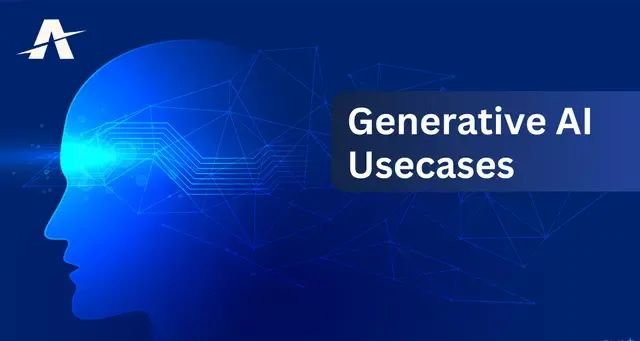
As artificial intelligence (AI) and machine learning (ML) rapidly evolve, model accuracy has become more important than ever. Whether you're tackling object detection, facial recognition, or autonomous driving, the success of your AI models hinges on the quality of the data they’re trained with. This is where image annotation becomes essential. It’s a key factor in improving the accuracy of your AI systems. In this blog, we'll explore how image annotation services can significantly enhance the performance of your AI models and why investing in high-quality image annotation is a smart move for your business.
What is Image Annotation ?
Image annotation is a critical process in AI development, involving the labeling of images to identify objects, boundaries, or features that an AI model needs to recognize. These labels serve as the ground truth for machine learning algorithms, enabling them to learn and make accurate predictions. Depending on the application, techniques such as bounding boxes, polygons, semantic segmentation, and landmark annotation may be employed.
For example, in a self-driving car project, annotated images help the AI distinguish between pedestrians, vehicles, and road signs. In healthcare, annotated medical images are used to train AI models to identify tumors or other anomalies. The accuracy of these annotations directly impacts the precision of the AI model’s predictions.
If you’re seeking expert image annotation services or looking to hire a dedicated Computer Vision Developer, our team is ready to assist. We provide specialized solutions tailorfind-and-hire-computer-vision-developered to your specific needs. Contact us today to explore how our experienced developers can contribute to the success of your project.
The Importance of High-Quality Image Annotation
The quality of image annotation directly impacts the performance of AI models. Poorly annotated images can lead to incorrect predictions, reduced model accuracy, and ultimately, the failure of the AI project. Here’s how high-quality image annotation services can improve the accuracy of your AI models:
1. Precise Labeling for Better Learning
Accurate image annotation ensures that the AI model receives the correct information during training. When every object in an image is correctly labeled, the model learns to identify these objects with greater precision. For example, in object detection tasks, if the bounding boxes around objects are accurately drawn, the model will be better at recognizing these objects in new images.
High-quality image annotation services employ experienced annotators who understand the nuances of the task, ensuring that every label is applied correctly. This precision in labeling helps the AI model to generalize better, leading to more accurate predictions.
2. Consistency Across Datasets
Consistency in image annotation is crucial for training reliable AI models. Inconsistent labeling can confuse the model, leading to poor performance. For example, if a car is sometimes labeled as a "vehicle" and other times as an "automobile," the AI model may struggle to learn the correct association.
Professional image annotation services ensure consistency across the entire dataset. They often use standardized guidelines and rigorous quality checks to maintain uniformity in labeling. This consistency enables the AI model to learn more effectively and make accurate predictions.
3. Handling Complex and Diverse Data
3. Handling Complex and Diverse Data AI models often need to be trained on complex and diverse datasets that include a wide range of scenarios, objects, and environments. Annotating such data can be challenging, especially when dealing with intricate images or overlapping objects.
Image annotation services have the expertise and tools to handle complex annotation tasks. Whether it’s annotating images with multiple objects, labeling fine details, or working with challenging environments, professional annotators can manage these tasks effectively. By accurately annotating complex data, these services help improve the AI model's ability to handle real-world scenarios.
4. Incorporating Domain Knowledge
Certain AI applications require domain-specific knowledge to accurately annotate images. For example, in medical imaging, annotators need to understand medical terminology and pathology to label images correctly. Similarly, in agricultural AI, understanding crop types and growth stages is essential for accurate annotation.
Image annotation services often employ specialists with domain-specific expertise to handle such tasks. By incorporating domain knowledge into the annotation process, these services ensure that the labels are not only accurate but also relevant to the specific application. This relevance enhances the model's ability to make precise predictions in its intended domain.
5. Reducing Bias in AI Models
Bias in AI models is a significant concern, particularly when the training data is not representative of all possible scenarios. Biased data can lead to models that perform well in some situations but fail in others, potentially causing harm or reinforcing stereotypes.
Image annotation services can help reduce bias by ensuring that the training data is diverse and that all scenarios are accurately represented. For example, in facial recognition AI, it’s important to include images of people from different ethnic backgrounds, ages, and genders. Professional annotation services can curate and annotate diverse datasets, helping to create more equitable and unbiased AI models.
6. Efficiency and Scalability
Annotating large volumes of images can be time-consuming and resource-intensive. However, the scale and speed of annotation are critical for training AI models within tight deadlines.
Image annotation services are equipped to handle large-scale projects efficiently. They use advanced tools, automation, and skilled teams to process vast amounts of data quickly without compromising quality. This scalability ensures that your AI models are trained on sufficient data, improving their accuracy and reducing the time to deployment.
These case studies demonstrate the tangible benefits that computer vision technology can bring to manufacturing operations, from enhanced quality control to streamlined inventory management and improved operational efficiency.
Choosing the Right Image Annotation Service Provider
Given the impact of image annotation on AI model accuracy, choosing the right service provider is essential. When selecting an image annotation company ,consider the following factors:
Future Trends and Advancements in Computer Vision Technology for Quality and Inventory Management
As computer vision technology continues to evolve, we can expect to see several exciting advancements that will further enhance its capabilities in manufacturing quality control and inventory management.
Experience and Expertise:
Look for a provider with a proven track record in your specific industry or application, ensuring they have deep knowledge of the unique challenges and requirements involved. Their experience should include working with complex datasets and a variety of annotation techniques, tailored to different use cases.
Quality Control:
Ensure that the company has rigorous quality control processes in place to maintain high annotation standards. This includes multiple layers of review, consistency checks, and the use of advanced tools to minimize errors, ensuring that the annotations meet the highest accuracy levels required for your AI models.
Scalability:
Choose a provider that can efficiently handle the scale of your project, whether you require thousands or millions of images annotated. The company should have the resources, infrastructure, and flexible workflows to adapt to varying project sizes and deadlines without compromising on quality.
Cost-Effectiveness:
Balance the cost with the quality of service, ensuring that you receive maximum value for your investment. Look for transparent pricing models and consider the long-term ROI of partnering with a provider that delivers high-quality annotations that enhance your AI model’s performance. High-quality image annotation is crucial for enhancing the accuracy of AI models. With precise labeling, consistent data, and the ability to handle complex scenarios while reducing bias, professional image annotation services lay the groundwork for successful AI projects. By teaming up with a dependable image annotation service provider, you can ensure your AI models are trained on the most accurate data, leading to more reliable and effective results. Investing in image annotation services not only enhances the performance of your AI models but also positions your business for success in the competitive world of AI and machine learning. Whether you're developing an advanced AI application or aiming to optimize existing models, the quality of your data annotation will make all the difference.










